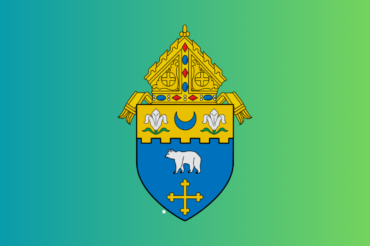Don’t Lower the Bar

God’s Word in Everyday Living
Marc Cardaronella
This week’s gospel, Matthew 5:38-48, contains a difficult teaching. It’s the last verse in this reading, Matthew 5:48, “You, therefore, must be perfect, as your heavenly Father is perfect.” How is it possible to be as perfect as God? He is perfection itself to the infinite degree!
When I first came back to the Church, I struggled with this. I figured Jesus was just being metaphorical and didn’t mean it literally. However, was that the case? The Saints and spiritual masters saw it differently. Can we be as perfect as God? That’s what this article will explore.
In my studies at Franciscan University, I got a lot of exposure to the Saints. I read books written by saints as source material. I read about saints. I read books that referenced saints. I was kind of new to Catholicism at that point. I had come back to the Catholic Faith after a 20-year absence so, while I was an adult, I was still a baby-Christian. So often the saints expressed such ardor and love for God. They were single-minded and devoted, especially when speaking about the Eucharist. For my part, I just couldn’t relate. I believed what they were saying was real for them. I just wasn’t feeling it myself.
In my own spiritual life, it just wasn’t happening. I didn’t have these overwhelming feelings of love in the presence of the Eucharist. I didn’t desire to give myself completely to God without reserve. Some saints like Maximilian Kolbe spoke of being a slave to God…completely and wholly at the service of his will. That was a bit much for me. I concluded that saints were special, God’s favorites. Somehow, they just got more, and that’s why they were so ardent. The Saints were at one level and the rest of us were at another. God set the bar at unattainable levels, that only a few could reach.
But then something changed. I read about theologians from centuries past who ran afoul of the Church. Their theological ponderings pushed the boundaries of acceptability. They rationalized the faith, made it more believable and humanly attainable. They reduced the miraculous and unimaginable truth to something more tangible, more real, less “out there.” They lowered the bar. And, when they did, the Church denounced them. That’s when I realized the bar must stay high. It can’t change, no matter how impossible it may seem, because once you lower it a little, you can lower it a lot. What one person deems reasonable, is too high for another. So, so they lower it again. Soon there isn’t a bar at all. Great, right? Now everyone can be holy! Except, in reality no one can be holy. All that potential for growth is left on the table. No one will experience it because they didn’t know it existed.
That’s what the Protestant reformer/revolutionaries did. They removed sacraments, saints, mysticism, ontological transformation of the soul through grace, and the differing levels of holiness. It wasn’t Martin Luther’s experience, so he figured it wasn’t real. He announced those things didn’t exist. Everyone is the same in the spiritual life. No favorites! No one really changes! Egalitarian Christianity. Then, other reformers came along and reduced his teachings even further. A woman once told me she experienced a kind of glass ceiling in her Protestant faith. After a while, there was nothing left to learn, nowhere to grow spiritually. They just talked about the same things. But Catholicism opened a whole new world. There was depth. The example and teachings of saints like Teresa of Avila introduced a growth potential she never even imagined.
Here’s the truth. Christian living is not natural, it’s super-natural. Living Christianity to its fullness is humanly impossible…that’s why we need grace. The Saints, as impossible as their lives may seem, are proof that radical holiness is possible. Don’t wish away the heights of the spiritual life just because you haven’t experienced them…yet.
Strictly speaking, can we be as perfect as God? Obviously not. There’s an infinite distance between us and God. Jesus is setting the bar in this passage, and every Christian must strive to meet it. Is it impossibly high? Maybe, but that’s exactly how it should be. There’s always more, so your work is never done. Honestly, wouldn’t it be boring if there was a limit and you’d already had everything there was?
A clarification is needed here. The perfection we’re called to in this passage isn’t God’s power and wisdom. It refers to love and mercy. How much are you called to give? Well, how much did Jesus give? The answer is everything he had. Following his example, we’re called to love enemies, pray for persecutors, and love without reward. Jesus calls everyone to holiness. It’s an imperative, not a suggestion.
We must understand the role of grace in this. Even imperfect levels of perfection are impossible without God’s help. Christian life is not about willpower or strength of character. It’s about being infused with God’s Spirit to the point of becoming like him. Sharing God’s life has soul-altering properties. We’re continually changed by the working of grace to become more and more like Christ—acting, judging, living, and loving like him. That is the perfection we seek. It’s different for everyone. But through that perfection, in small ways, we begin to change the world. In God’s time, when this is lived by every Christian, it will have a leavening effect on the wider society. Do your part and you’ll see.
Marc Cardaronella is Director of the Office of Catechesis and Faith Formation.
For this Sunday’s scripture readings and readings throughout the year, visit the USCCB website.





